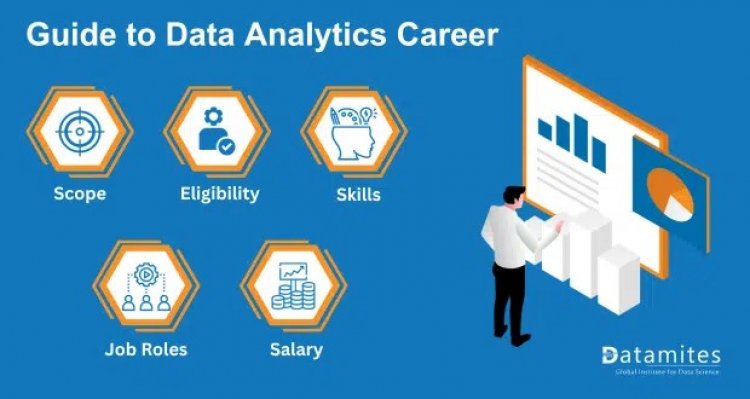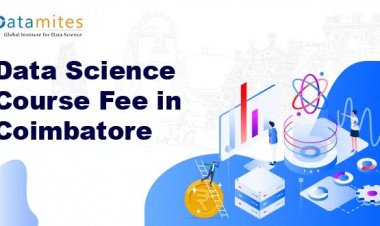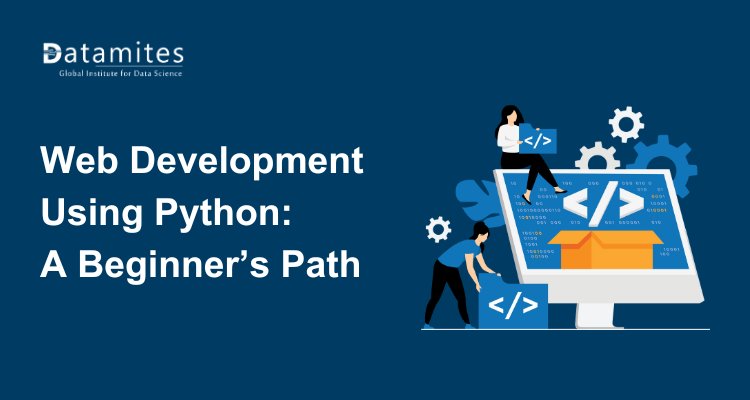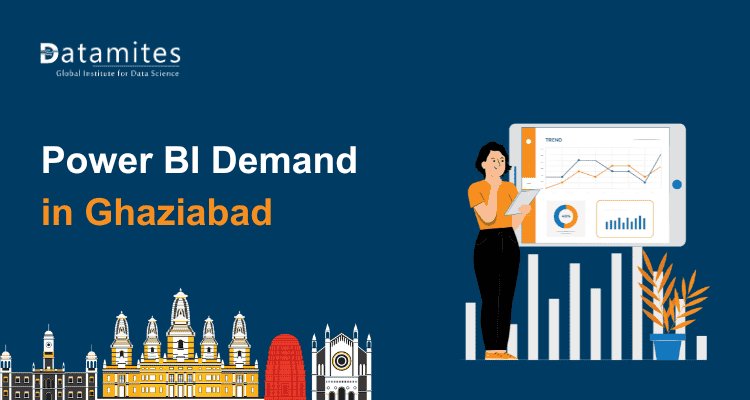Guide to Data Analytics Career – Scope, Eligibility, Skills, Jobs roles and Salary

Data analytics presents a burgeoning opportunity, driven by a growing tech ecosystem and a rapidly expanding market for data-driven insights. It is the process of examining, cleaning, transforming, and interpreting data to extract valuable insights and make informed decisions. In today’s world, data analytics plays a crucial role in various industries, helping organizations gain a competitive edge, optimize operations, and better understand their customers.
As per a recent study from Precedence Research, the global data analytics market stood at $30 billion in 2022 and is projected to surpass around $393.35 billion by 2032, with an anticipated compound annual growth rate (CAGR) of 29.4% from 2023 to 2032.
The demand for data analysts is on the rise as businesses recognize the need to harness the power of data. In this article, we will explore the significance of data analytics, and the growing demand for data analysts, and provide an overview of the key topics we will cover to help readers understand its importance in today’s data-driven landscape.
Data Analytics: Understanding the Power of Data-driven Insights
Data analytics is a transformative process that harnesses the immense power of data-driven insights. It involves collecting, processing, and analyzing vast amounts of data to uncover valuable patterns, trends, and knowledge. These insights enable businesses and organizations to make informed decisions, improve efficiency, and gain a competitive edge.
The significance of Data Analytics in today’s world
- Informed Decision-Making: Data Analytics empowers data-driven decision-making, leading to more informed and superior choices.
- Business Enhancement: It assists businesses in pinpointing inefficiencies, streamlining processes, and enhancing overall performance.
- Personalization: Data Analytics enables tailored experiences and targeted marketing approaches based on individual customer behaviour.
- Predictive Insights: Through the analysis of historical data, it provides valuable foresight and predictions for future trends and outcomes.
- Advancements in Healthcare: Data Analytics contributes to progress in medical research, patient care, and disease diagnosis within the healthcare sector.
- Fraud Detection: It plays a crucial role in detecting and preventing fraudulent activities, especially in finance and other industries.
Refer the following articles:
- Data Science vs Data Analytics
- Data Science vs. Big Data vs. Data Analytics – Know the Difference
- What is Descriptive Analytics?
- What is Prescriptive Analytics?
The Scope Of Data Analytics
The realm of Data Analytics is extensive and encompasses a wide array of industries and domains. Its applications span various facets of business, research, and decision-making. As per the U.S. Bureau of Labor Statistics (BLS), the field of data analysis is expected to witness substantial growth, with a projected growth rate of 22% by 2030. This growth rate is significantly higher than the average, leading to an annual demand for more than 3,000 new positions to be filled.
Data analytics has a scope across various industries. Here’s a brief overview of how data analytics is applied in different sectors:
Healthcare:
- Predictive analytics for patient care and outcomes.
- Analysis of medical images and diagnostics.
- Optimization of treatment plans and hospital operations.
Finance:
- Risk assessment and fraud detection.
- Personalized investment strategies and customer service.
- Market trend analysis and algorithmic trading.
Retail:
- Customer behaviour and preference analysis.
- Supply chain and inventory optimization.
- Personalized marketing and product recommendations.
Manufacturing:
- Predictive maintenance of machinery.
- Efficiency optimization in production processes.
- Quality control and assurance analytics.
Technology and IT:
- Network security and anomaly detection.
- User experience and interface optimization.
- Trend analysis in technology adoption and usage.
Education:
- Student performance and learning needs analysis.
- Curriculum development and personalized learning.
- Institutional performance and operation analytics.
E-commerce:
- Increasing conversion rates by personalizing product recommendations.
- Reducing cart abandonment rates through targeted follow-up communication.
Marketing and Advertising:
- Maximizing ROI by analyzing campaign performance and optimizing ad spend.
- Targeting specific customer segments with tailored messaging and offers.
Agriculture:
- Enhancing crop yields and resource efficiency through precision farming.
- Optimizing harvest timing and pest control for sustainable agriculture.
Transportation and Logistics:
- Optimizing routes and schedules for efficient transportation.
- Improving safety through predictive maintenance and driver behaviour analysis.
Educational Prerequisites and Essential Skills for a Data Analyst Career
To excel in a Data Analyst career, there are several educational prerequisites and essential skills you should consider. These form the foundation of a successful career in this field: Here are some key points to consider in eligibility and educational requirements:
Educational Prerequisites
- Bachelor’s Degree: A bachelor’s degree in fields such as statistics, computer science, information technology, or business analytics is typically required. Some roles might accept degrees in related fields like economics or social sciences, especially if complemented with additional coursework or experience in data analysis.
- Relevant Coursework: Courses in statistics, mathematics, data management, and programming are highly beneficial. Knowledge in specific areas like database structure, data mining, and data warehousing can be advantageous.
Essential Skills for Data Analysts
The skills of data analysts include:
Statistical analysis and modeling: Data analysts need to have a strong grasp of statistical techniques and the ability to create models to extract meaningful insights from data.
Data preprocessing and cleaning: Cleaning and preparing data for analysis is a crucial step in data analytics, involving tasks like handling missing values and outliers.
Data visualization: Effective data visualization skills are essential for conveying findings and insights to both technical and non-technical stakeholders.
Machine learning basics: Familiarity with machine learning concepts and algorithms can enhance data analysts ability to automate tasks and make predictions from data.
Business acumen: Understanding the business context and objectives is vital for data analysts to provide actionable recommendations and insights that align with organizational goals.
Problem-solving skills: Data analysts must possess strong problem-solving abilities to tackle complex data-related challenges and identify creative solutions.
Exploring the Job Landscape in Data Analytics and its Role
Data analytics is experiencing rapid growth in today’s business landscape. Current trends show an increasing reliance on data-driven insights to gain a competitive edge and make informed decisions. A career in data analytics offers a wide range of opportunities in various industries as organizations increasingly rely on data-driven decision-making. Here are some of the career opportunities in data analytics:
Data Analyst: Data analysts collect, clean, and analyze data to help organizations make informed decisions. They often use tools like Excel, SQL, and data visualization tools to present their findings.
Business Analyst: Business analysts focus on understanding business processes and identifying opportunities for improvement using data analysis. They work closely with stakeholders to translate business needs into data requirements.
Data Scientist: Data scientists are highly skilled professionals who use advanced statistical and machine learning techniques to uncover insights from data. They build predictive models and develop algorithms to solve complex business problems.
Data Engineer: Data engineers are responsible for designing and maintaining data pipelines and data infrastructure. They ensure data is collected, stored, and processed efficiently so that analysts and data scientists can work with it effectively.
Data Architect: Data architects design the overall structure of data systems within an organization. They create data models and define data standards to ensure data is organized and accessible.
Refer these articles:
- How to Become A Data Scientist – Best Certification Courses in India
- How much is the Data Analytics course fee in India?
- How to Become a Data Analyst in India
What are the current Job Market and Salary Trends in Data Analytics?
The job market for data analysts continues to exhibit promising prospects with robust growth in various industries. According to the latest NASSCOM report, the Indian Big Data Analytics sector holds the potential to achieve a market valuation of USD 16 billion, driven by an anticipated compound annual growth rate (CAGR) of 26% from 2019 to 2025.
Here are some key points to consider:
Job Opportunities for Data Analysts:
- Data analysts are in high demand across industries such as healthcare, finance, e-commerce, and technology.
- Companies rely on data analysts to extract valuable insights from data, aiding in decision-making and strategy development.
- Google, Facebook, Amazon, Microsoft, IBM, and Apple are the top IT companies that provide data analyst positions.
Worldwide Salary Ranges for Data Analysts:
- The salary of a data analyst in the UK ranges from GBP 37,546 per year as per Indeed report.
- The salary of a data analyst in the USA ranges from $76,857 per year according to an Indeed report
- The salary of a data analyst in India ranges from INR 6,88,500 per year according to a Glassdoor report.
- The salary of a data analyst in South Africa ranges from ZAR 3,02,168 per year according to the PayScale report.
- The salary of a data analyst in Canada ranges from CAD 67253 per year according to an Indeed report.
- The salary of a data analyst in the UAE ranges from AED 81,181 per year according to an Indeed report.
- The salary of a data analyst in Germany ranges from EUR 48,431 per year according to the PayScale report.
- The salary of a data analyst in Switzerland ranges from CHF 1,10,000 per year according to a Talent.com report.
Refer these articles:
- A Journey from Fresher to Data Analyst: Sherin Shana
- Journey from Mechanical Engineering to Data Analyst
- A Journey from Fresher to Data Analyst
What is the future of Data Analytics?
The future of data analytics is poised for continued growth and innovation. With the exponential increase in data generation, analytics will become even more integral across industries, from healthcare to finance. Advanced technologies like artificial intelligence and machine learning will enhance predictive analytics, enabling organizations to make more accurate decisions. Additionally, ethical considerations and data privacy will play a significant role, demanding responsible and transparent data handling practices. Overall, data analytics will remain at the forefront of driving insights, efficiencies, and competitiveness in the global economy.
Summary:
There is a growing significance of data analytics careers in today’s world. It underscores the vast scope of opportunities within this field, ranging from data scientists to business analysts, and how these roles play a crucial role in decision-making across industries. Students should consider opting for a career in data analytics due to its promising job prospects, competitive salaries, and pivotal role in shaping the future of businesses and technology. Enrolling in data analytics courses is an essential move for those aspiring to enter this vibrant and influential field.
DataMites Data Analytics Institute provides a comprehensive range of courses in the field of data analytics, covering fundamental concepts as well as advanced topics such as AI. It serves as an excellent platform to acquire knowledge and become part of a global community of data analysts. If you have a keen interest in both technology and business, pursuing a career in data analytics is a wise decision, and DataMites is well-equipped to assist you in launching your rewarding journey in this dynamic field. DataMites also provides a wide range of courses on Python, Deep Learning, Data Science, Machine Learning, MLOps, Tableau, Data Mining etc.
Data Science vs Data Analytics






